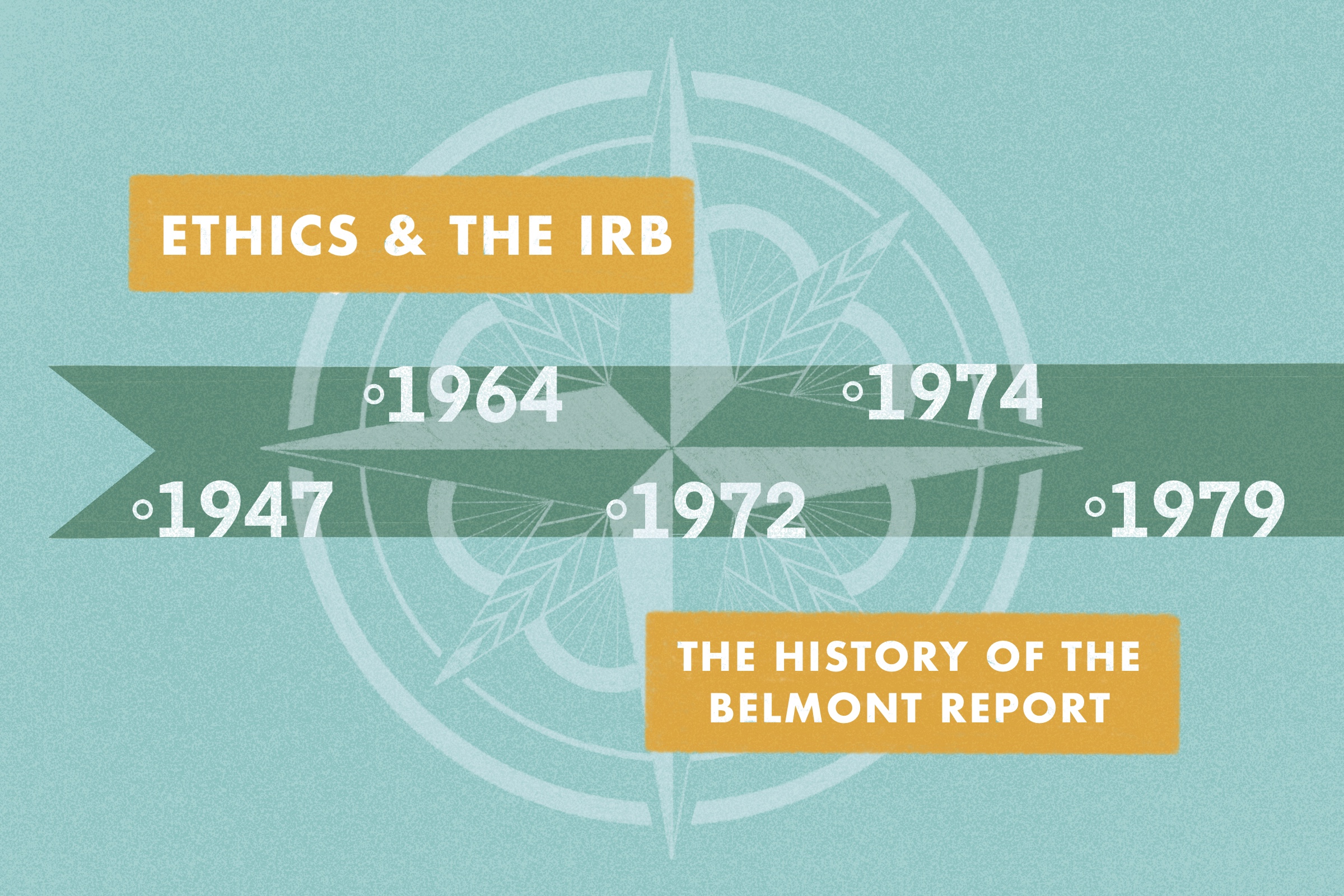

“Good judgment comes from experience and experience comes from poor judgment.”
- An Aphorism
The Institutional Review Board (IRB) is a system of checks and balances for research with human subjects. It was founded on three guiding principles from the Belmont Report: 1) respect for persons, 2) beneficence, and 3) justice. Although review boards are now a regular part of the modern research process, the Belmont Report—and the ethical oversight it created—was only developed in the last century.
Researchers have collected human subjects data in one form or another for centuries (e.g., public observations, medical experiments, etc.). Individuals have wrestled with the application of ethical decision making and its place in research, as well as daily conduct. Efforts leading to the formation of the IRB were in part catalyzed by highly publicized cases documenting researchers’ abuse of power.
One well known example dates back to 1945. During World War II, Nazi scientists committed egregious crimes against the Jews, including experiments that showed no regard for human rights or life. After the war ended, the scientists were convicted by trial in Nuremberg, Germany. The crimes discussed during the trials shocked the scientific community. These trials set the stage to produce the Nuremberg Code, which was one of the first modern documents addressing ethical research with human subjects.
The Nuremberg Code outlines ten points for conducting ethical research, including the requirement for voluntary consent, researcher qualifications, risks versus benefit, and participant’s right to terminate. The Nuremberg Code became the building block for a number of other important codes of research, including the Declaration of Helsinki (1964), which specifically addresses medical research.
The Nuremberg CodeA second contributing factor to the development of the Belmont Report was the Public Health Service’s (PHS) Tuskegee Study. In 1972, the Associated Press covered the Tuskegee Study, in which black men with syphilis consented to be “treated” by researchers in exchange for meals, medical exams, and burial insurance. However, the full extent of the study was not disclosed to participants: the researchers were actually examining the course of untreated syphilis in the body, and the participants were denied information and access to penicillin, a cure for syphilis. A class-action lawsuit was brought against the PHS to end the study. The study revealed a striking flaw in current human subjects' protection policies; they were not sufficient to protect their participants from harm. In response, President Nixon signed the National Research Act (1974) into law, which created the National Commission for the Protection of Human Subjects of Biomedical and Behavioral Research (also referred to simply as the National Commission). He charged the National Commission with establishing a code of research ethics to govern domestic research. The National Committee released The Belmont Report in 1979, which identifies basic ethical principles underlying biomedical and behavioral human subjects research.
Though the Belmont Report is the most widely cited article in the United States for the protection of human subjects research, it is important to remember the events that contributed to its origination. Even with the current wealth of research ethics literature available to modern researchers, unifying the protections of human subjects with research aims can still present a challenge. Review committees, such as the IRB, aim to support researchers in identifying possible harm that may come to participants and assessing the risks versus benefits of a study. The IRB promotes the ethical conduct of research and strives to foster cooperation and collaboration among institutions, investigators, and research staff.
— Kailee Kodama Muscente, Ed.M.
Published Monday, Aug 3, 2020
Institutional Review Board
Address: Russell Hall, Room 13
* Phone: 212-678-4105 * Email: IRB@tc.edu
Appointments are available by request. Make sure to have your IRB protocol number (e.g., 19-011) available. If you are unable to access any of the downloadable resources, please contact OASID via email oasid@tc.edu.
Teachers College, Columbia University
525 West 120th Street
New York, NY 10027
Tel: +1 (212) 678-3000